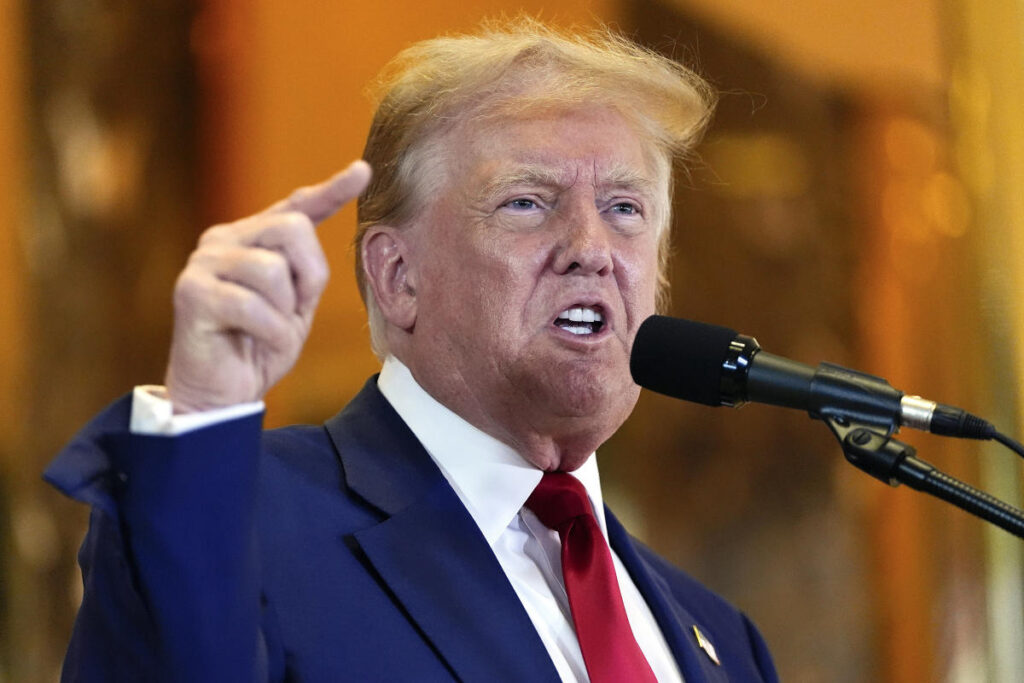President-elect Donald Trump is leveraging claims of juror misconduct in his ongoing battle to overturn his hush money conviction. In court documents released on December 3, Trump’s lawyers allege that significant misconduct occurred during the trial, which they argue calls into question the integrity of the verdict. This letter, authored by attorneys Todd Blanche and Emil Bove, was partially redacted, concealing the specifics of the allegations from public scrutiny. The revelation adds a new dimension to the legal strategy being employed by Trump’s defense as he navigates the complexities of the judiciary while preparing for his return to the White House.
The Manhattan Judge, Juan M. Merchan, is currently reviewing the defense request to dismiss the case, which pertains to Trump’s conviction for falsifying business records related to a $130,000 payment made in 2016 to silence allegations of an affair with the pornographic actress Stormy Daniels—claims Trump vehemently denies. In response to the misconduct allegations, Judge Merchan has noted that the court cannot base its decisions on mere hearsay or conjecture, emphasizing the need for thorough investigation before drawing any conclusions. Merchan’s statements also highlight the delicate balance between judicial integrity and the safety of jurors, whose identities have been protected throughout the proceedings.
Despite attempts to derail the conviction, Trump’s push to dismiss the case based on presidential immunity has also faced setbacks. The judge recently rejected his arguments, clarifying that a ruling by the Supreme Court providing broad protections to former presidents does not encompass the dismissal of the charges against Trump. This ruling indicates that legal precedents regarding the responsibilities and accountability of former presidents may not exempt Trump from facing serious legal consequences. The denial reflects the ongoing judicial scrutiny that Trump must endure, as well as the firm stance of the court in managing politically charged cases.
In light of Trump’s impending inauguration, Judge Merchan has postponed sentencing to allow both parties to deliberate over the next steps. Trump’s legal team emphasizes that taking any action other than immediate dismissal could disrupt the constitutional transition of power. They argue that it raises significant concerns about the legitimacy and functioning of the presidency. Conversely, prosecutors have proposed various options to safeguard the verdict, including delaying proceedings until Trump’s term concludes, ensuring that any potential sentence does not include incarceration, or allowing the case to be treated in a manner similar to cases where the defendant has passed away. However, Trump’s lawyers have dismissed these propositions, labeling them as unreasonable and impractical.
The political atmosphere surrounding Trump’s legal battles is further complicated by his unique status as the first former president to face felony convictions. As he prepares to assume office on January 20, 2024, the implications of his conviction and ongoing litigation remain highly contested. His attorneys’ insistence on the misconduct allegations adds a level of tension to the case as they contend that such grievances should not simply be disregarded. The intersection of legal proceedings and political aspirations in Trump’s scenario demonstrates the significant challenges he faces, and how legal outcomes can have far-reaching consequences on governance and public perception.
In summary, the allegations of juror misconduct and the intense legal wrangling surrounding Trump’s hush money case underscore a pivotal moment in both Trump’s political career and the U.S. legal system. The courtroom dynamics reflect not only the challenges inherent in prosecuting a former president but also the broader implications for future cases involving political figures. As both sides await further developments, the overarching questions of accountability, justice, and the rule of law in a politically polarized environment will continue to prompt dialogue and debate across the nation.

